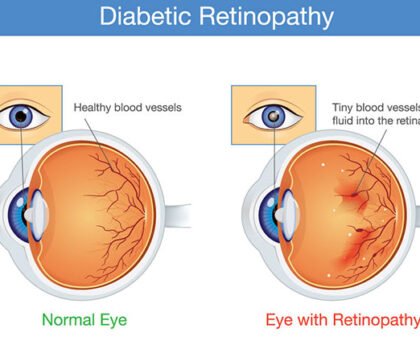Introduction
Therapy for Autism: Autism Spectrum Disorder (ASD) affects how a person communicates and interacts with others. Many individuals with autism face challenges in speaking, understanding language, and expressing themselves.
Speech therapy is one of the most important tools to help autistic people improve their communication skills. It builds confidence, improves social life, and supports daily activities.
In Hong Kong, families are becoming more aware of the importance of early support. Luckily, there are growing options for speech therapy services across the city.
Understanding Speech Therapy for Autism
What is Speech Therapy?
Definition and Goals
Speech therapy helps people develop and improve their communication abilities. For children and adults with autism hong kong, the goal is to make communication easier and more effective, whether through speaking, gestures, or using tools like picture boards.
How It Supports Communication and Social Skills
Speech therapy teaches how to express feelings, needs, and ideas. It also helps with understanding what others say. Good communication leads to better friendships, school success, and independence.
Differences Between Speech Therapy and Language Therapy
Speech therapy focuses on speaking clearly (articulation), while language therapy is about understanding and using words and sentences. Both are important, especially for people with autism.
Communication Challenges in Autism
Common Speech and Language Difficulties
Delayed Speech Development
Many autistic children start talking later than other kids. Some may not speak at all without support.
Limited Social Communication
Making eye contact,Therapy for Autism taking turns in conversation, and reading social cues can be very hard.
Echolalia and Repetitive Speech
Some individuals repeat what they hear, known as echolalia. They might echo words or phrases without understanding their meaning.
Nonverbal Communication Issues
Gestures, facial expressions, and body language may also be affected.
Impact on Daily Life and Relationships
When communication is tough, it affects school, work, friendships, and self-esteem. That’s why early therapy makes such a big difference.
Role of Speech Therapists
Assessing Speech and Language Abilities
Therapy for Autism Therapists start by checking what the child can do and where support is needed.
Setting Personalized Goals
Every person with autism is different.Therapy for Autism Therapists create goals based on the child’s strengths and needs.
Using Play-Based and Structured Methods
Games, toys, and real-world activities make learning fun and effective.
Benefits of Speech Therapy for Autism
Improving Communication Skills
Expressing Needs and Wants
Therapy teaches ways to ask for things, share feelings, and make choices.
Understanding Others
Listening and responding correctly become easier with practice.
Using Alternative Communication Methods (AAC)
If speaking is very hard, tools like picture boards, apps, or devices can help.
Enhancing Social Interaction
Teaching Conversation Skills
Therapy for Autism Learning how to start, continue, (Therapy for Autism) and end conversations improves friendships.
Building Relationships and Friendships
Better communication leads to stronger and more meaningful relationships.
Supporting Behavior and Emotional Regulation
Reducing Frustration Caused by Communication Struggles
When kids can say what they need, they feel less angry or upset.
Teaching Coping Strategies Through Language
Therapy helps kids name their feelings and ask for help.
Boosting Academic and Daily Life Success
Helping with Classroom Participation
Understanding lessons and joining activities become easier with better language skills.
Improving Independence in Daily Activities
Simple tasks like ordering food or asking for directions are easier with strong communication skills.
Speech Therapy Approaches and Techniques for Autis
Traditional Approaches
One-on-One Therapy Sessions
Personalized sessions focus directly on the child’s unique needs.
Group Therapy for Social Skills
Small groups teach conversation skills, sharing, and teamwork.
Family and Caregiver Involvement
Parents and caregivers learn techniques to help at home.
Specialized Methods for Autism
Picture Exchange Communication System (PECS)
Kids learn to use pictures to communicate needs.
Augmentative and Alternative Communication (AAC) Devices
Apps, speech-generating devices, and picture boards give non-verbal kids a voice.
Social Communication, Emotional Regulation, and Transactional Support (SCERTS) Model
A popular method that focuses on social communication and emotional well-being.
Play-Based and Functional Communication Training
Using Toys and Games to Encourage Language
Playtime becomes learning time with guided activities.
Teaching Communication in Natural Settings
Everyday moments like shopping or mealtime are perfect learning opportunities.
Speech Therapy for Autism in Hong Kong: The Current Situation
Availability of Services
Public Sector (Hospitals, Child Assessment Service)
Government services provide speech therapy, but waiting lists can be long.
Private Clinics and Practices
Many private centers offer quicker access to specialized therapy.
Challenges in Accessing Speech Therapy
Long Waiting Lists in Public Services
Families often wait months, delaying critical early support.
High Costs of Private Therapy
Private sessions can be expensive, putting a strain on many families.
Limited Insurance Coverage
Insurance often does not cover therapy costs fully, making affordability a big issue.
Growing Demand and Recent Developments
New Clinics and Specialized Centers
More therapy centers are opening, giving families more options.
Increased Public Awareness and Education Programs
Campaigns and events are helping people understand autism better.
Where to Find Speech Therapy Services for Autism in Hong Kong
Government and Public Resources
Hospital Authority Services
Therapy for Autism Public hospitals offer assessment and therapy through referral systems.
Child Assessment Centres (CAC)
These centers diagnose autism and provide initial support services.
Social Welfare Department Programs
Some families may qualify for government-funded programs.
Private Speech Therapy Clinics
Leading Private Clinics Specializing in Autism
Some top clinics include Autism Partnership Hong Kong and The Jadis Blurton Family Development Center.
Costs and Package Options
Many offer therapy packages that include assessments, sessions, and family training.
Things to Consider When Choosing a Private Therapist
Look for experience with autismTherapy for Autism , positive reviews, and flexible therapy plans.
NGO and Community Organization Services
Heep Hong Society
Offers professional therapy and workshops for children and parents.
Autism Partnership Hong Kong
Provides specialized services for children with ASD.
The Child Development Centre
Therapy for Autism Focuses on therapy, learning, and inclusion for kids with special needs.
School-Based Speech Therapy
Special Needs Schools with In-House Therapists
Some schools hire speech therapists to work directly with students.
Speech Therapy Support in Mainstream Schools
Inclusive schools often offer part-time speech support for students with special needs.
Teletherapy and Online Options
Benefits of Online Speech Therapy
Online therapy can be convenient and accessible from home.
Popular Platforms Offering Speech Therapy Services
Some clinics now offer Zoom or Skype-based sessions.
How to Choose the Right Speech Therapist for Your Child
Key Factors to Consider
Experience with Autism
Look for therapists who specialize in working with autistic children.
Communication Style and Rapport with Your Child
The therapist should be patient, friendly, and able to connect with your child.
Methods and Approach Used
Choose a therapist who uses methods that fit your child’s needs.
Questions to Ask Before Starting Therapy
Therapy Goals and Expected Outcomes
Ask about short-term and long-term goals for your child.
How Progress Will Be Measured
Find out how the therapist tracks improvements.
Parent Involvement and Home Practice Support
The best results come when parents join in the learning.
Tips for Supporting Speech Development at Home
Simple Activities and Games
Reading Aloud and Storytelling
Books help build vocabulary and spark conversations.
Singing Songs and Nursery Rhymes
Music makes learning words fun and easy to remember.
Everyday Conversation Practice
Talk to your child during daily routines like cooking or shopping.
Creating a Communication-Friendly Environment
Encouraging Choices and Asking Questions
Let your child make small decisions to build language skills.
Being Patient and Giving Extra Time to Respond
Give your child enough time to think and answer.
Working Closely with the Therapist
Following Therapy Recommendations at Home
Practice at home helps speed up progress.
Tracking and Celebrating Small Improvements
Every small step forward deserves a big cheer!
Conclusion
Speech therapy plays a powerful role in helping autistic individuals in Hong Kong live fuller, happier lives.
Therapy for Autism With the right support, many children and adults Therapy for Autism can improve their communication, connect with others, and achieve greater independence.
Early intervention, growing resources, and stronger community support are making a big difference in Hong Kong. If you think your child needs help, don’t wait — the earlier therapy starts, the better the outcome.





